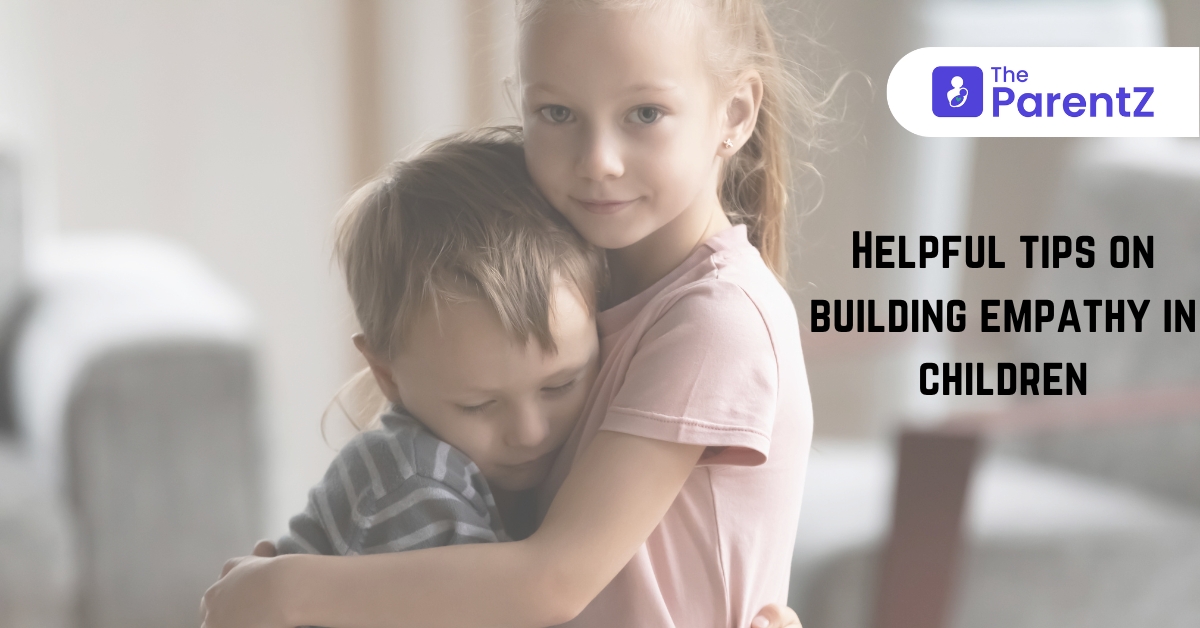The cultivation of empathy within children stands as an indispensable element within their emotional and social growth. By comprehending the thoughts and emotions of others empathy facilitates connections between individuals while fostering kindness, compassion, as well as positive relationships. To nurture this quality within children consider employing the following practical suggestions:
Lead by example
As prominent observers children learn greatly from observing parental or caregiver behavior. Model acts of kindness or compassion during daily interactions with others so they may witness firsthand how one exemplifies empathy. Demonstrating empathic responses through listening attentively or offering aid validates individuals’ feelings raising awareness for understanding various perspectives.
Teach perspective taking
Encourage children to envision themselves in others’ positions thus increasing comprehension of diverse viewpoints. Inquire how they believe their friend may have felt during a specific occurrence or what actions they would adopt if placed within an identical circumstance. Such exercises nurture empathy development by encouraging children to reflect on the emotions and experiences of others.
Encourage active listening
Emphasize the significance of attentively listening without interrupting or forming judgments when engaging with others. Encouraging children to observe both verbal and nonverbal cues heightens their ability to grasp the emotions experienced by individuals more deeply. Active listening empowers children to respond with greater empathy and support.
Promote emotional awareness
Help children identify and express their own emotions as it contributes greatly toward understanding and empathizing with others. Encourage them to articulate their feelings through words while cultivating an environment where open expression prevails securely.
Explore diverse perspectives
Expose kids to different cultures, traditions, and perspectives through books, movies, and conversations. This exposure helps them appreciate different backgrounds and fosters empathy and acceptance. Have open discussions about diversity, emphasizing the importance of respecting and valuing others’ unique experiences.
Encourage kindness and compassion
Encourage generosity and gestures of kindness towards others. Engage kids in charitable work or other activities that foster empathy, such as volunteering. Discuss how theirc actions affect other people and how they can affect someone’s life. Celebrate and acknowledge their kind deeds to reinforce empathy as a positive behavior.
Problem-solving through empathy
Teach kids to consider how their actions affect others and encourage them to find solutions that consider everyone’s needs. Help them come up with alternative approaches that show empathy and understanding towards others’ feelings and perspectives. This way, kids learn to navigate conflicts with empathy and compassion.
Develop conflict resolution skills
Teach kids effective communication strategies to resolve conflicts peacefully. Encourage them to express their feelings assertively while listening to others’ viewpoints. Help them find common ground and compromise, fostering empathy and understanding as they work through disagreements.
Practice gratitude
Foster a sense of gratitude in kids by encouraging them to express appreciation for the people and things they have in their lives. Gratitude cultivates empathy by helping kids recognize others’ efforts and contributions. Encourage them to write thank-you notes or engage in acts of gratitude regularly.
Remember that building empathy in children takes time and consistency. Be patient and provide positive reinforcement. By incorporating these tips into your parenting or caregiving approach, you can help children develop a strong foundation of empathy, leading to healthier relationships and a more compassionate world.








Be the first one to comment on this story.